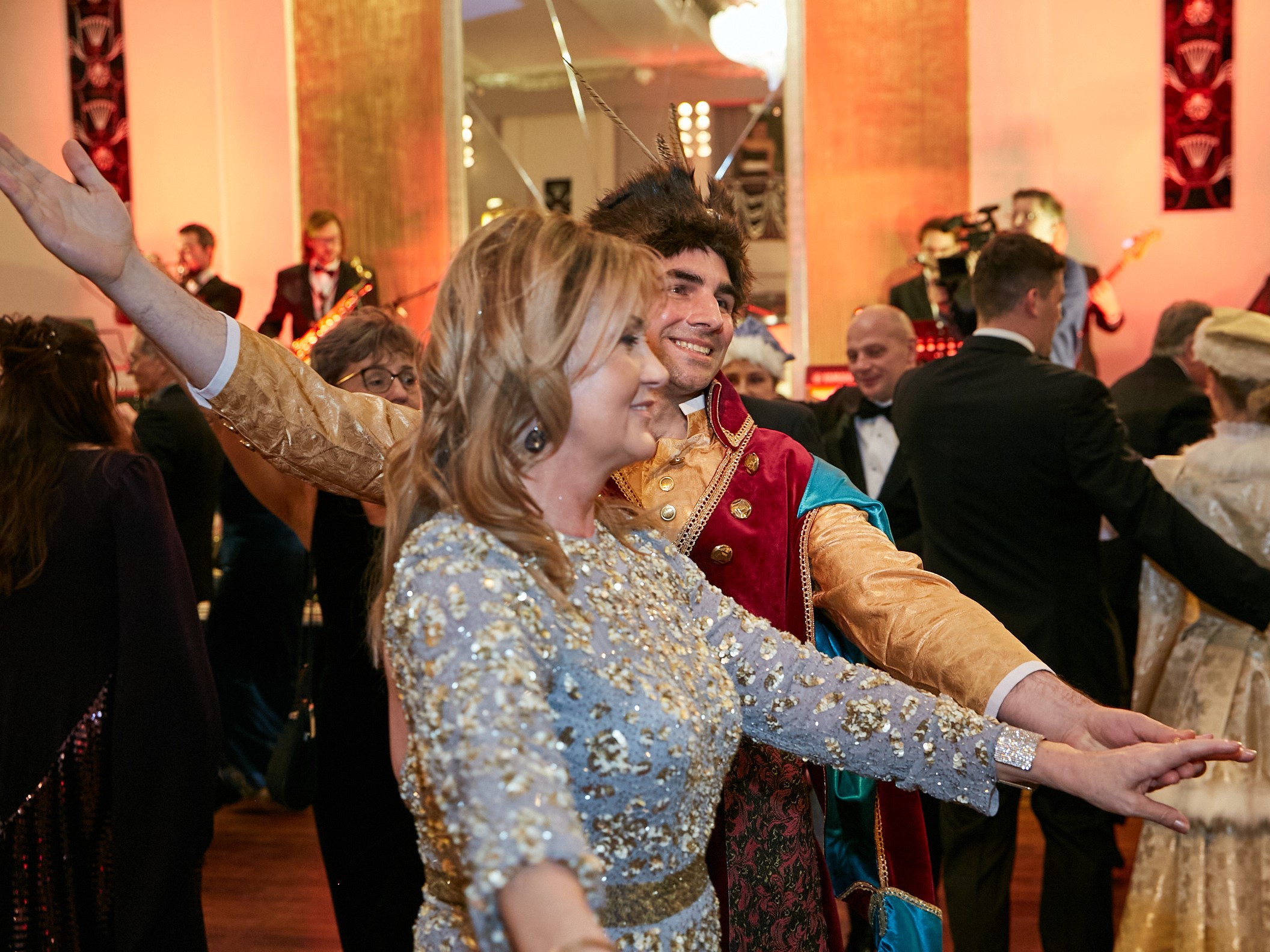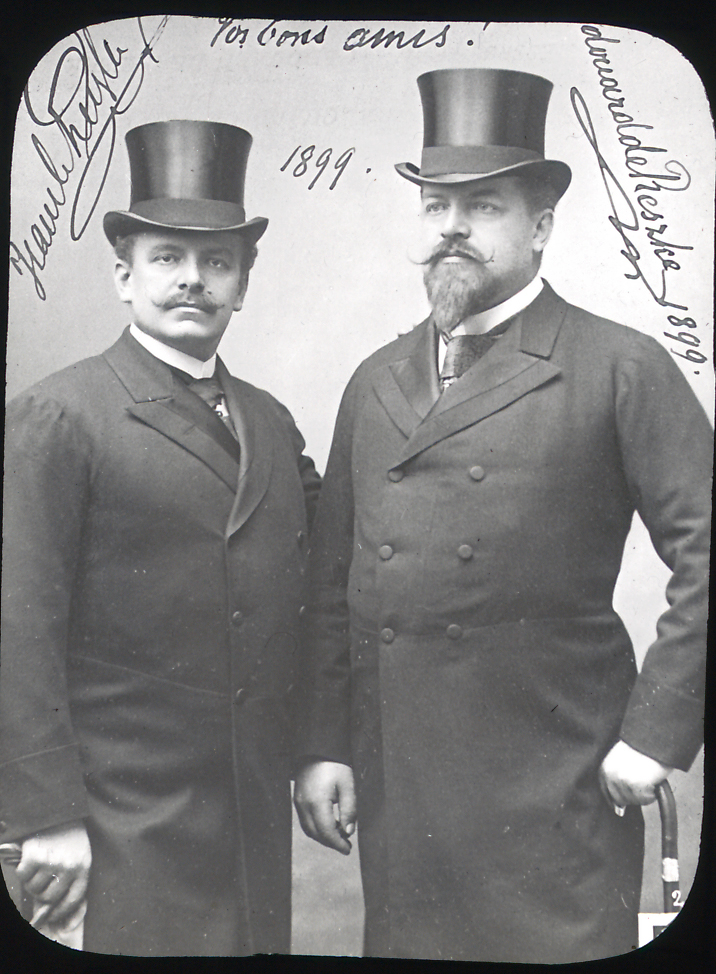
De Reszke brothers were two opera singers who became some of the most well-respected, world-famous performers of their time, not to mention favourites of Queen Victoria herself. Performing in leading opera houses in Paris, New York, and London, the brothers took on many roles in the course of their illustrious careers. Edward was a favourite of Verdi’s, while Jan was one of Meyebeer’s tenor heroes.
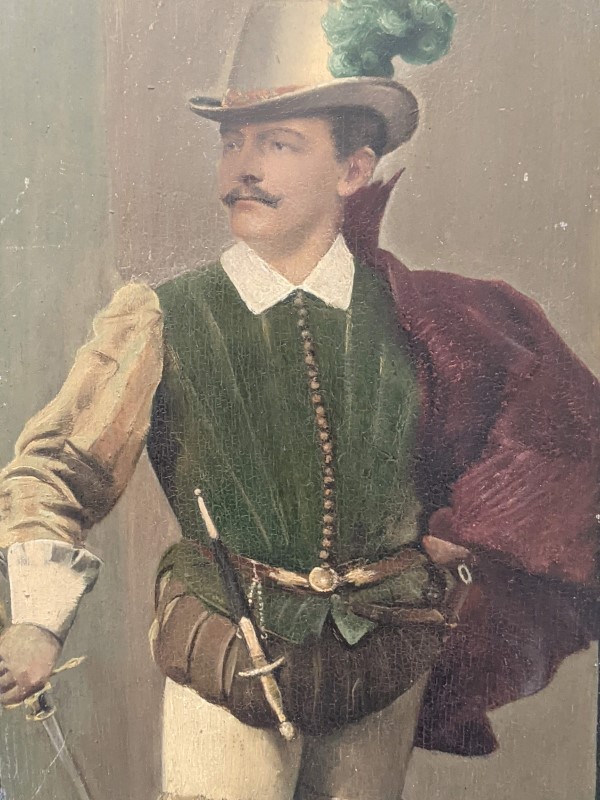
Jean (1850-1925) and Edouard De Reszke (1853-1917) were born into a wealthy, musical family in Warsaw. They learned to sing at their family home, which, thanks to the enthusiasm of their parents, became one of the leading centres of music in the city. The artistic world of Warsaw would regularly descend upon the house for nights of singing. So great was their parents’ love of music that of their five children, three went on to have stellar international careers. The youngest, Josephine De Reszke (1855-1891), became an operatic soprano and one of the leading stars of European opera. But it was Jan and Edouard that garnered more fame. Jean made his debut as a baritone, however, he was limited in range, and, after a period of study Jean debuted again, this time as a tenor, in 1879 in Madrid. The reception this time round was rapturous. Edward debuted in 1876 in Paris, in a performance of Aida. He was chosen for the role by none other than Giuseppe Verdi. Their successes were unlimited: New York, Chicago, Paris, Milan, Warsaw, were just some of the places where De Reszke brothers were admired by audiences in the operas of Wagner, Verdi, Gounod, Massenet, and Meyerbeer. The brothers often performed in duets, with world-famous partners such as Nellie Melba and Adelina Patti.
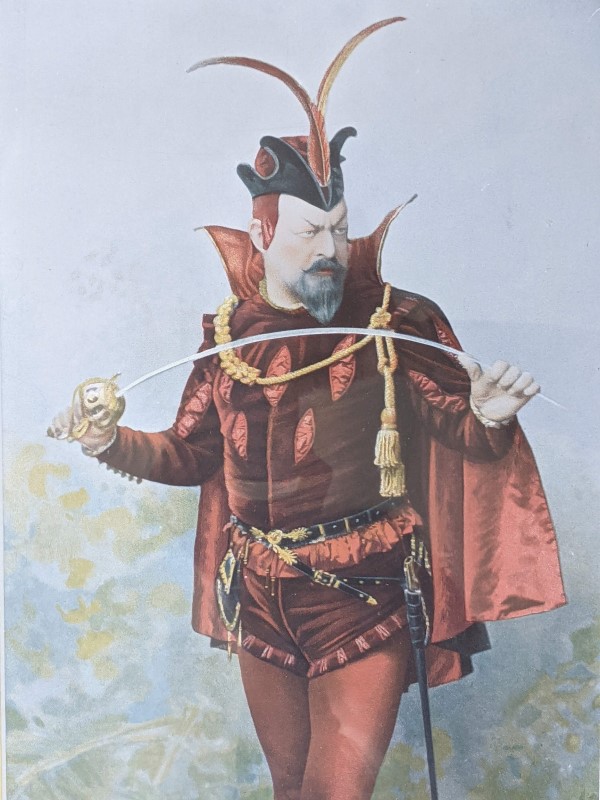
Great Britain was, along with Paris and New York, one of the most important operatic centres for the De Reszke brothers’ careers. They appeared in London, often together, during almost every season in the last two decades of the nineteenth century. Edward performed a record 460 times to English audiences, and Jan over 300 times. Indeed, their performances were so popular that many scholars believe that they were largely responsible for the revival of opera in Britain at the end of the century. They made some very noteworthy admirers, the Prince and Princess of Wales, and were frequent visitors to Windsor Castle and Buckingham Palace, giving private performances for the royal family and their guests. They performed at the 60th anniversary of Queen Victoria’s accession to the throne (1897) and at her 80th birthday (1899). Queen Victoria mentions these performances several times
in her diaries:
Queen Victoria’s Diary, 17 July 1894
A fine day after rain in the night. — Breakfast in the Colonnade at Frogmore. — After luncheon Jean & Edouard de Reszke sang in the Red Drawing room. Edouard’s voice is marvellous, so powerful & deep. The 2 brothers sang together a duet from “Carmen” (part of a chorus) unaccompanied. They are most gentlemanlike, fine men & their voices (though Jean’s is tenor) have a great likeness. Tosti played the accompaniments. It was indeed an immense treat. I told them I hoped I might some day have the pleasure of seeing them act…
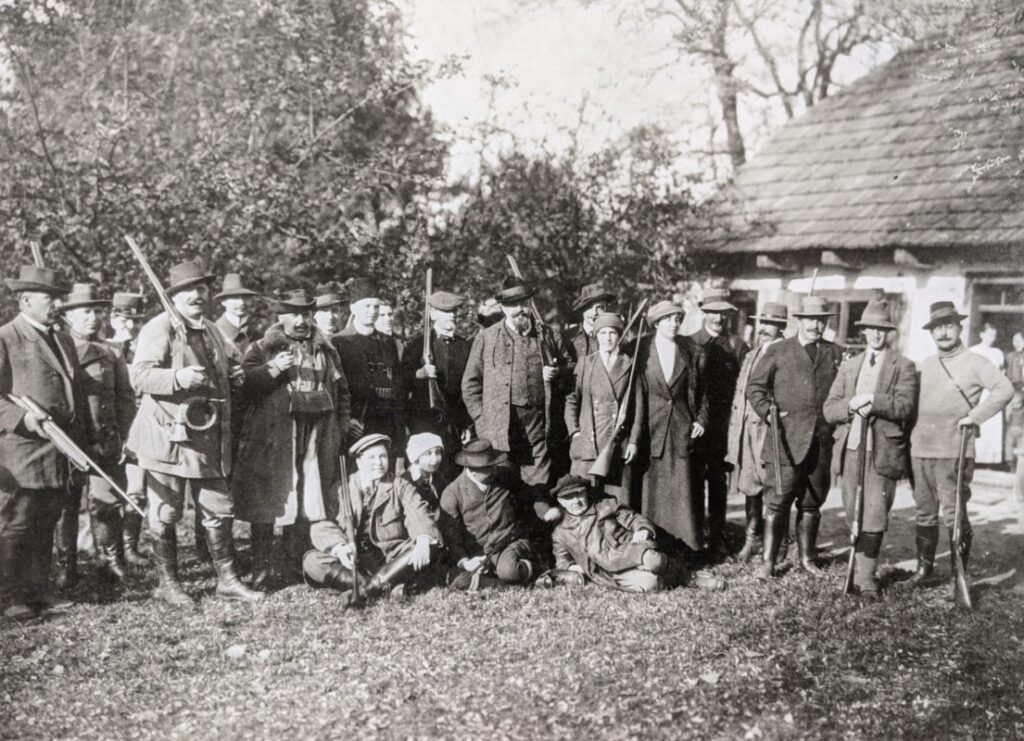
Portraits of Jean and Edouard still hang at the Covent Garden opera house today. Their fame is also immortalised in Arthur Conan Doyle’s Hound of the Baskervilles, where Holmes says to Watson, “And now, my dear Watson, we have had some weeks of severe work, and for one evening, I think, we may turn our thoughts into more pleasant channels. I have a box for ‘Les Huguenots’. Have you heard of the De Reszkes?”
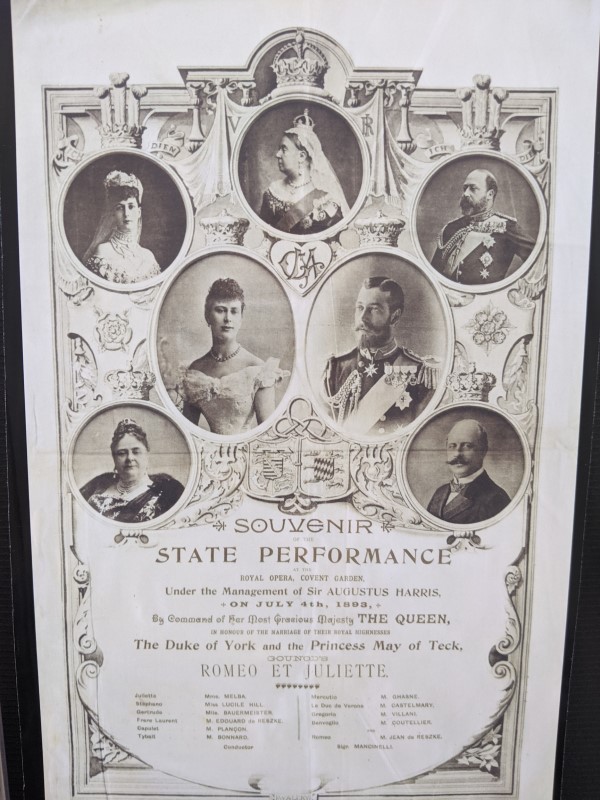
Despite their international fame, Jean and Edouard never forgot their Polish origins. They decided to settle near the town of Częstochowa, returning between opera seasons with large groups of guests who they entertained with hunting and singing. Edouard and his wife Helena Schütz employed a French architect to build an architecturally innovative family home, Garnek, where these lavish parties were hosted. Jan began breeding racehorses. After retiring in 1904 and 1903, Jean and Edouard opened singing schools, Edward in Warsaw, Jean in Paris and Nice. Preferring his French life to his rural Polish home, Jean moved to Nice after the tragic death of his only son at the end of World War I. He lived out his final years there. Nevertheless, he trained the next generation of noteworthy singers, including Bidu Sayao and Mieczysława Ćwiklińska.
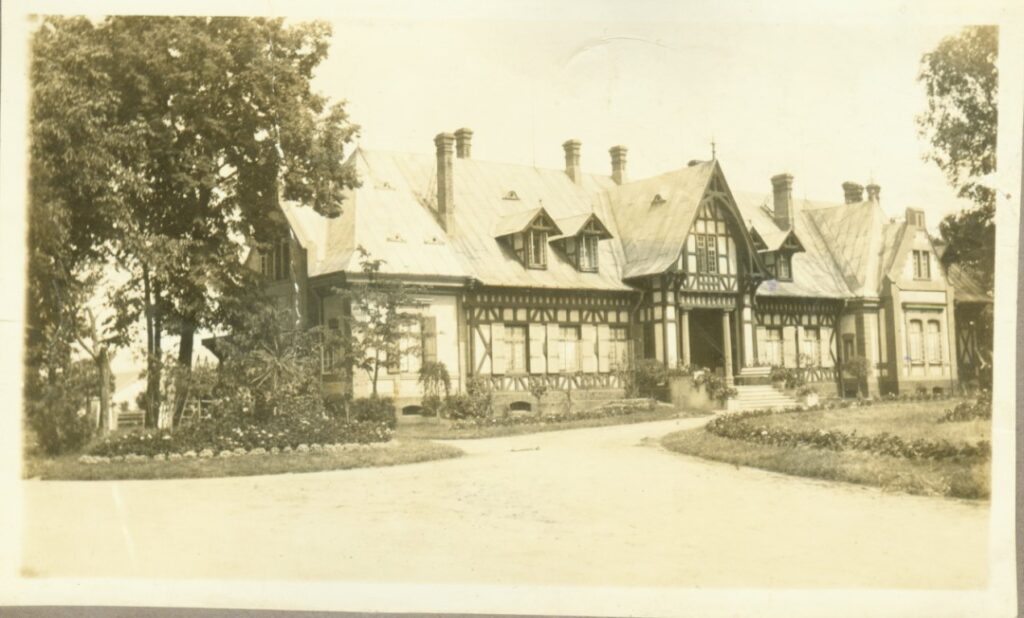
Despite their incredible success, relatively little remains of their history. World War II and communism destroyed the collective memory of these singers, as well as many material artefacts. Edouard’s descendants were evicted from their estates, and their family home, Garnek, burned down in the 1950s. However, stage costumes, a few pictures of the singers, and commemorative souvenirs can be found in the Muzeum Teatralne in Warsaw. The popularity of Reszkes resulted in advertising contracts with products such as notes, musical instruments and even a brand of cigarettes. The history of the De Reszke family is cared for by the local community of Częstochowa.
Every year, in May, concerts are held on the anniversary of the death of Edouard de Reszke. A park was created in Garnek. The Reszke Foundation organises a vocal competition named after Józefina, Jan and Edward that supports young talents.

